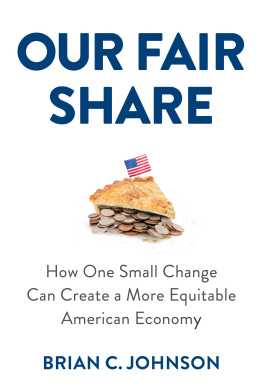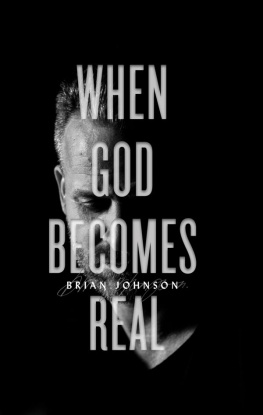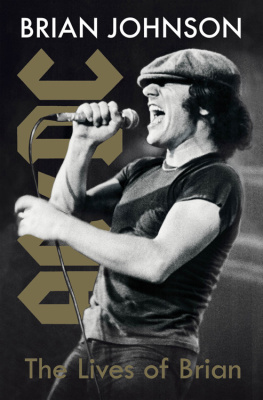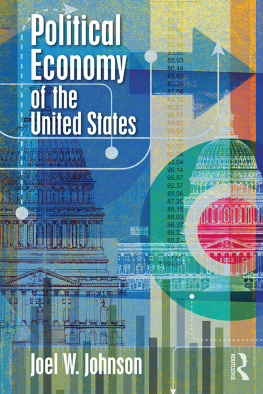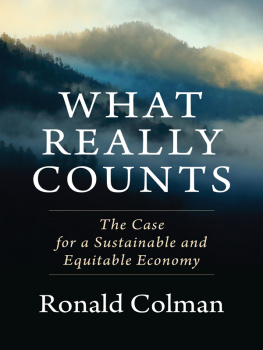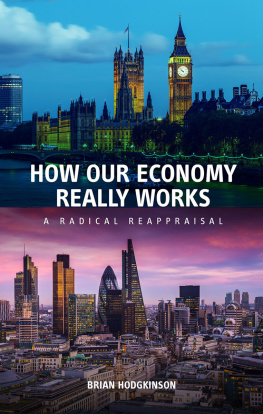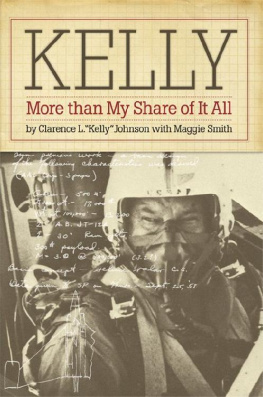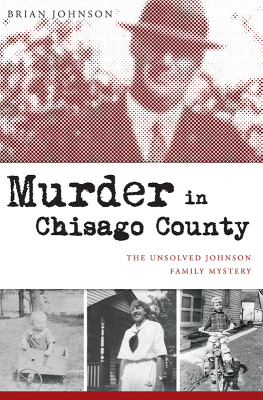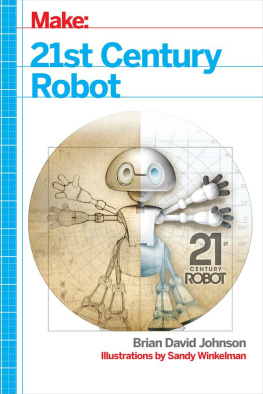OUR FAIR SHARE
How One Small Change Can Create a More Equitable American Economy
Copyright 2021 Brian C. Johnson. Printed by Broadleaf Books, an imprint of 1517 Media. All rights reserved. Except for brief quotations in critical articles or reviews, no part of this book may be reproduced in any manner without prior written permission from the publisher. Email or write to Permissions, Broadleaf Books, PO Box 1209, Minneapolis, MN 55440-1209.
Graphs appearing in chapters 6 and 7 are adapted from The Spirit Level: Why Greater Equality Makes Societies Stronger by Richard Wilkinson and Kate Pickett, copyright 2009, 2010 by Richard Wilkinson and Kate Pickett. Used by permission of The Equality Trust.
Cover image: iStock photography
Cover design: 1517 Media
Print ISBN: 978-1-5064-7075-7
eBook ISBN: 978-1-5064-7076-4
While the author and 1517 Media have confirmed that all references to website addresses (URLs) were accurate at the time of writing, URLs may have expired or changed since the manuscript was prepared.
To my parents, who taught me that Americas greatest beauty lies in our people and our ideals
Out of Many, One
We may have democracy, or we may have wealth concentrated in the hands of a few, but we cant have both.
Justice Louis Brandeis
We have a story in my family, and like all family stories, it is probably mostly true and a little bit not. My sister, who is two years younger than I am, has always been able to charm a stranger. When she was four years old, she used to go around telling adults how old she was with the accent of a New York cabbie. But when she turned five, she proudly announced her age with the lilt of a southern debutante.
Like all good family stories, this tale reflects both our roots and our trajectory. My parents hail from New York City. My dad grew up in Queens. My moms family is from the Bronx, and she was raised out on Long Island. But early on, each of my folks lives led them out of New York. Soon, two New Yorkers whose families had lived in New York since they immigrated to America in the late nineteenth century had two children born in Kentucky.
If you were to meet my parents today, you would be hard-pressed to detect a New York accent. But as I was growing up, my mom in particular had a pronounced one, and my early patterns of speech reflected where my parents came from. But over the two decades of my childhood, we were nomads. In fact, by the time I had turned fourteen, I had lived in eleven different homes, in nine different towns, in five different states, and even in two different countries. So at four, my sister living in Monterey Bay, California, spoke like her New York parents. But by five, when she was living in eastern North Carolina, she spoke like her southern kindergarten classmates. We talked like we lived, carrying our roots and growing with every new community.
But beyond speech, this nomadic existence deeply influenced the way I learned to approach communities more broadly. After each move, I had to figure out how to integrate into the ever-changing, motley cast of people around me. I studied what they talked about, what they valued, and how they spent their time. To be honest, I stumbled frequently and often stood on the outside of new communities for long uncomfortable periods. But this work at integration had its own prize.
Like a blacksmith hammering out a new scythe, this regular beating of newness and outsiderness developed in me a hard-forged tool for being in the world. The core of that tool was a deep understanding that each community viewed itself as good in its own right. That the way it saw the world around it and its relationship to that world was largely decent. That theirs was a culture of beauty and virtue. When I approached each new community with an assumption of its own goodness, the community readily shared that goodness.
I used this tool repeatedly as I got older. As I approached new places, I sought first to understand. By honoring the worldview each community held, I could begin building meaningful relationships with its members. When I graduated from my middle-class public schools to the courtyards of intergenerational privilege at Princeton. When I ate lunch in the teachers lounge in a Baton Rouge elementary school. When I stood in front of assemblies of two hundred parents at the public schools I ran in central Los Angeles. When I sat down across from LGBTQ people at coffee shops in Peoria. This tool embedded itself deep in my psyche and in my approach over these years.
Most fundamentally, using this tool has taught me how woven together we all are in this country: CEOs and senators at Princeton, Black parents in Baton Rouge, immigrant families in Los Angeles, trans men and women in central Illinois. Over nearly four decades of moving and working around our country, Ive learned that what underlies Americas greatness is our commonness and our connectedness.
Commonness and Connectedness: What Binds Us Together and Makes Us Uniquely American
For most of the first half of my career, I worked with and on behalf of low-income families of color. We fought together to make sure their schools delivered on Americas promise: that regardless of race or class or zip code, their children would be given an equal shot at opportunity. And then in 2009, in my early thirties, I accepted an offer to run a racially and socioeconomically diverse public school in the heart of Hollywood. Here was a community that was among the most diverse in America, and our school reflected that. We had children of Oscar and Emmy nominees, television network presidents, and talent agents going to school with the children of immigrants whose parents didnt speak English. We held these communities in almost equal measure. Our student population was nearly half white and half children of color. Half of our students came from low-income families and half came from middle- and upper-income families.
Going into this work, I thought that my interactions with privileged families were going to be wildly different from those I had with low-income ones. While these two groups differed on the marginsand mostly in how they approached me and school leadershiptheir hopes and dreams were largely similar. Both sets of families cared most about whether their children were safe and loved. They focused on whether their childrens unique potential for genius was sought out, valued, and developed.
As I got to know these families better, I learned that it wasnt just how they approached their childrens schooling that bound them in similarity, but so much more. I can honestly say, after having worked with thousands of families over nearly two decades, that I have never met a parent who didnt want better for their kid than they had. And nearly all were working hardmost in highly productive ways, a few in dysfunctional waysto give their child this opportunity.
This is what I mean by commonness. Regardless of race, class, ethnicity, profession, country of origin, native language, or religion, these parents were engaged in a shared struggle to make the lives of their children good and safe and vibrant.
I dont mean to suggest some Pollyannaish view of the world here. Differences existedmeaningful ones. Some parents expected their children to be compliant. Others raised them to question authority. Some parents wanted limited academic expectations set for their children, while others preferred rigorous ones. Some viewed our teachers as contract employees who were expected to deliver a service the parents paid for with their taxes. Others viewed teachers as largely unassailable experts.

